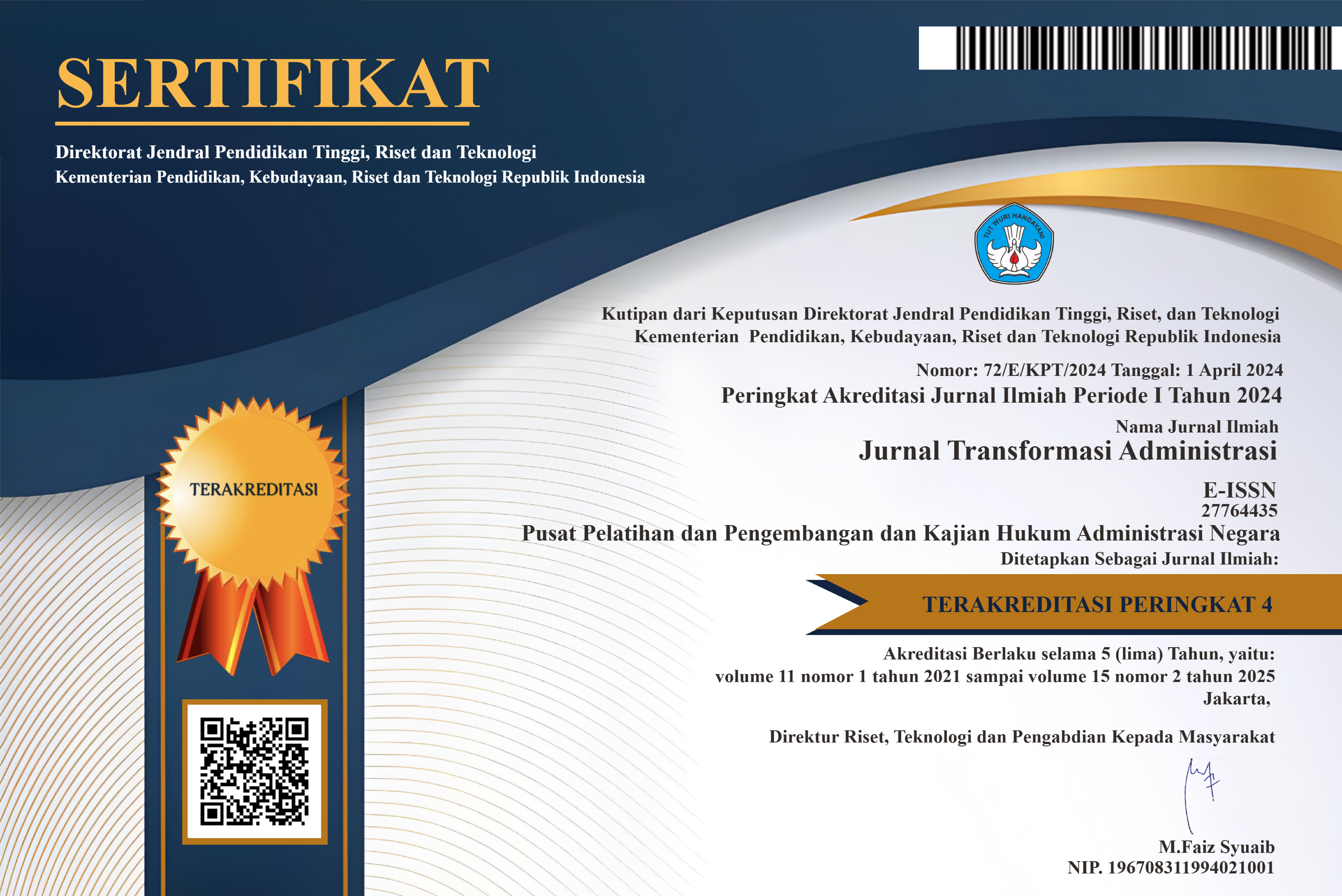TANGGUNG JAWAB PEMERINTAH DALAM PEMBERIAN SANKSI ADMINISTRASI TERHADAP PNS TERPIDANA KORUPSI PASCA PUTUSAN MAHKAMAH KONSTITUSI NOMOR 87/PUU-XVI/2018
DOI:
https://doi.org/10.56196/jta.v10i02.159Keywords:
tanggung jawab Pemerintah, PNS terpidana korupsi, Putusan MK Nomor 87/PUU-XVI/2018Abstract
Based on Article 87 Paragraph (4) letter b of the ASN Law and the Constitutional Court Decision Number 87 / PUU-XVI / 2018, civil servants are dishonorably discharged because they are sentenced to imprisonment or imprisonment based on a court decision that has permanent legal force for committing a criminal offense or a criminal act. a criminal offense related to the position. This implies that for the sake of law, officials with authority, namely Civil Service Officers are obliged to issue decisions disrespectfully of civil servants who are proven to have committed acts of corruption based on the inkracht decision. This study is to examine how the responsibility of the Civil Service Officer (PPK) in issuing a dishonorable dismissal decision on civil servants who are involved in corruption based on an inkracht court decision. The results of the study, it is known that the Personnel Development Officer of the institution where the PNS is domiciled receives a delegation from the President to issue a decision to disrespectfully dismiss civil servants who have committed acts of corruption. This decision can be issued from the end of the month the inkracht court decision was issued. This is reinforced by the issuance of a Joint Decree of the Minister of Home Affairs, Minister of Administrative Reform and the Head of the State Civil Service Agency Number 182/6597 / SJ, Number 15 of 2018, and Number 153 / KEP / 2018. Personnel guidance officers who deliberately refuse to issue this decision, may be subject to administrative sanctions under Article 80, Article 81 and Article 82 of Law Number 30 of 2014. At the end of the paper the author concludes the importance of ASN legal compliance to carry out their duties professionally and responsibly, and not to commit acts that are prohibited by law (corruption) so as not to get administrative sanctions from the PPK and have the opportunity to lose their status as ASN.















